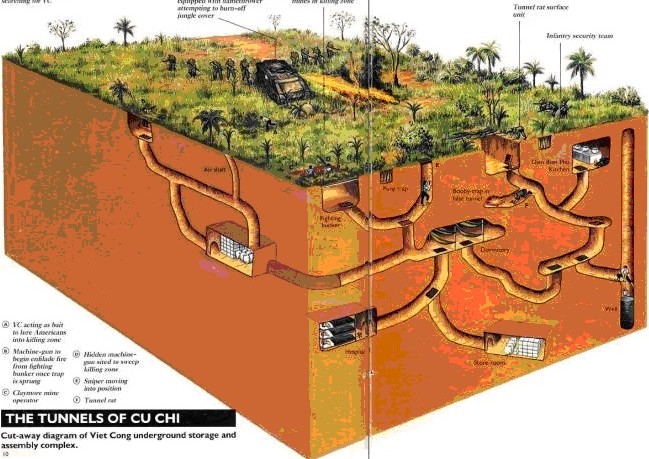Construction of the first tunnels actually started under the French rule and spanned 25 years. The network is extensive, over 200 km of galleries in Cu Chi district alone. Other branches reach as far away as the Cambodian border. The network, built several stories deep, included living quarters, specially designed Dien Bien Phu kitchens’ which diffused the smoke so as to be invisible from the skies, a weapons factory, command centers and even field hospitals.
Ironically, ignorant of the existence of the tunnels, US military installed a large base camp right on top of the network. It too them months to figure out why, at night, soldiers were being shot right in their tents. The Americans and Australian tried a variety of methods to pacify the area around Cu Chi, at that time known as the Iron Triangle. But neither bombs, napalm, defoliant, hunting dogs, nor tunnel rats were successful in driving Viet Cong guerrillas away. In 1969 the Americans decided to carpet bomb the whole area with B-52s, turning the area into what has been described as ‘the most bombed, shelled, gassed, defoliated and devastated area in the history of warfare’. Although they managed this time to destroy most of the tunnel network, along with everything else around, it was too late: the war was ending and the tunnel had been an important component of the Viet Cong victory.

